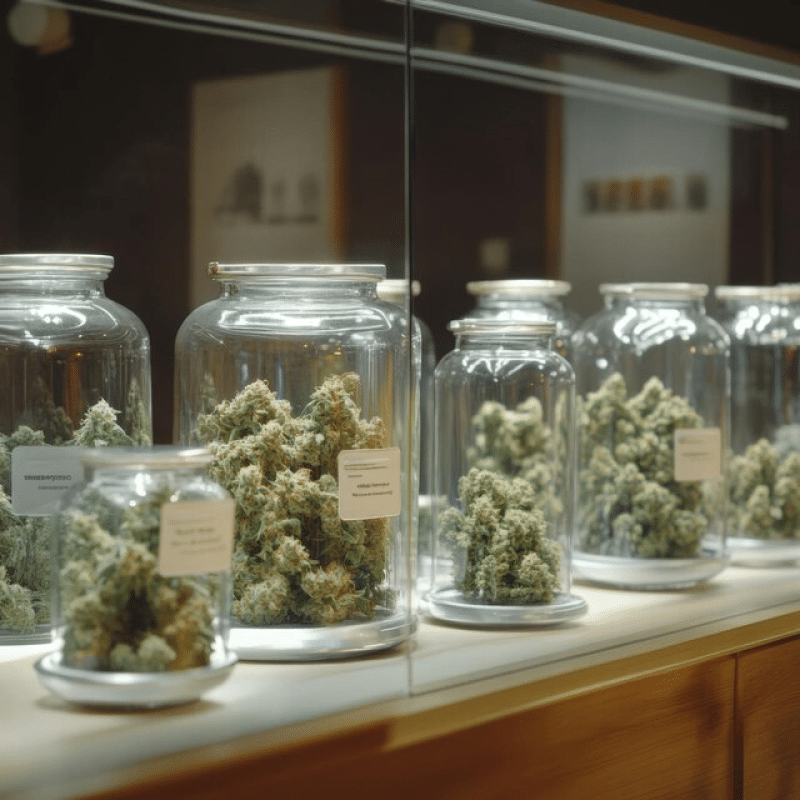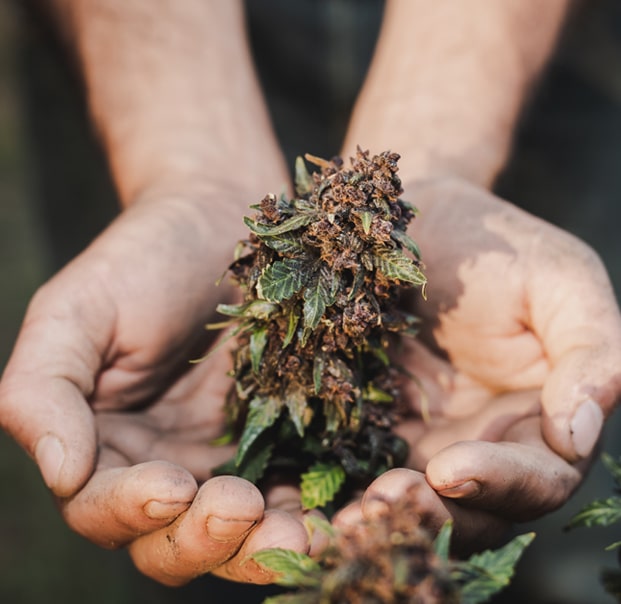Historical Context
Maryland’s well-regulated system ensures transparency and accessibility for individuals seeking a cannabis license. By thoroughly understanding the necessary steps and requirements, aspiring entrepreneurs can position themselves strategically for success in this burgeoning industry.
The state’s commitment to maintaining a safe and responsible environment through its regulatory framework allows entrepreneurs to contribute to the industry’s growth while providing valuable products and services to consumers.
In Maryland, the regulatory landscape for cannabis licenses is carefully structured to ensure compliance and promote a safe and transparent cannabis industry. The state has established regulatory bodies and agencies to oversee the licensing process and monitor the operations of cannabis businesses.
The Maryland Medical Cannabis Commission (MMCC) is the primary regulatory authority responsible for overseeing the medical cannabis program in the state. The MMCC (Maryland Medical Cannabis Commission) carries out regulations, including issuing licenses for medical cannabis cultivation, processing, and dispensing.
According to the MMCC, there were over 120,000 registered patients in the state, indicating significant demand for medical cannabis. The MMCC reported that the medical cannabis industry in Maryland generated over $1 billion in sales since the program’s launch in 2017.
Types of Cannabis Licenses in Maryland
Cultivation Licenses
Permits for growing cannabis, with various tiers based on facility size and growing conditions.
Manufacturing Licenses
Allows for processing cannabis into various products, including extracts and edibles.
Retail Licenses
Enables the operation of dispensaries and delivery services for medical and/or recreational use.
Distribution Licenses
Required for transporting cannabis products between licensed facilities.
Cultivation Licenses
Grower licenses issued under MMCC. Expanded for adult-use in 2023.
Back to the TopDistribution Licenses
Transportation permitted within business types. No third-party distributors.
Back to the TopHow to Obtain a Cannabis License in Maryland
Research and Prepare
To obtain a cannabis license in Maryland, it is crucial to familiarize yourself with the specific requirements and criteria set forth by the Maryland Medical Cannabis Commission (MMCC).
Entrepreneurs seeking a medical cannabis business license in Maryland must understand the needs of patients suffering from severe or chronic pain. Medical patients suffering from persistent muscle spasms, post-traumatic stress disorder, and severe nausea rely on medical cannabis for relief.
Here are some key points to consider:
Eligibility Criteria
Applicants must be at least 21 years old and meet certain residency requirements. For individuals, this means being a resident of Maryland for at least two years prior to the application date.
For businesses, the entity must be registered and in good standing with the Maryland State Department of Assessments and Taxation.
Background Checks
All individuals with a financial interest in the cannabis business, including owners and employees, must undergo background checks conducted by the MMCC. The checks include criminal history records and financial investigations.
Application Timeline
The MMCC typically opens application windows periodically for different license types. It is important to stay updated with their official website for announcements and deadlines.
The application process involves submitting various documents, including a comprehensive business plan, security plan, financial information, and proof of compliance with local zoning and land-use regulations.
Fees
Nonrefundable application fees are associated with each license type, which vary depending on the license category and class.
It’s essential to review the fee structure outlined by the MMCC to understand the costs involved.
Cultivation License:
- Class A (Up to 2,000 square feet): $2,000 application fee
- Class B (2,001 to 10,000 square feet): $4,000 application fee
- Class C (Over 10,000 square feet): $6,000 application fee
Processing License: $3,000 application fee
Dispensary License: $6,000 application fee
Testing Laboratory License: $3,000 application fee
Develop a Solid Business Plan
Developing a solid business plan is essential for obtaining a cannabis license in Maryland. A comprehensive and tailored business plan demonstrates your understanding of the local cannabis market and regulatory requirements.
It should include a thorough market analysis, examining the demand, competition, and potential growth opportunities in Maryland. Financial projections outlining revenue forecasts, expenses, and profit margins are crucial to showcase the viability of your business.
Entrepreneurs must prioritize the needs of medical marijuana patients when planning their business operations. Your plan should address security measures to safeguard your facility, employees, and inventory, including surveillance systems, access controls, and employee training.
Demonstrating a strong commitment to compliance is vital, outlining procedures for inventory management, record-keeping, packaging, labeling, and employee training on responsible cannabis use.
Given the intricacies of the industry and specific requirements in Maryland, seeking professional assistance or consulting services can ensure your business plan meets the expectations of the Maryland Medical Cannabis Commission (MMCC).
By developing a comprehensive business plan that addresses these key elements, you will enhance your chances of obtaining a cannabis license and position your business for success in Maryland’s thriving cannabis market.
Assemble the Necessary Documentation
Here is a checklist of the required documentation for a cannabis license in Maryland:
- Proof of Identification (e.g., driver’s license, passport)
- Proof of Maryland Residency (e.g., utility bill, lease agreement)
- Financial statements, business plan, and proof of funding sources
- Lease agreement and property ownership documents (if applicable)
- Security plan and documentation for physical security measures
- Standard Operating Procedures (SOPs) for cultivation, manufacturing, or retail operations
- Employer Identification Number (EIN) and Maryland State Tax ID Number
- Employee handbook or policies and Maryland Unemployment Insurance registration
- Proof of Workers’ Compensation Insurance
- Maryland business license and industry-specific permits
- Maryland Sales and Use Tax License
- OSHA compliance documentation (if applicable) and health inspection certificates (if applicable)
- Environmental Impact and Sustainability Plans (if required)
- Compliance Documentation for Waste Management and Disposal
Submitting the Application
Completing and submitting the application for a cannabis license in Maryland requires careful attention to detail and adherence to submission deadlines. Here is a guide to help you through the process:
- Review the application requirements: Understand the specific documentation and materials needed for each section.
- Gather necessary documentation: Collect accurate and up-to-date documents, such as identification, financial statements, business plans, and security plans.
- Provide accurate information: Be meticulous and precise when completing the application form, ensuring all entries are accurate and supported by appropriate documentation.
- Showcase qualifications: Highlight your relevant experience, skills, and expertise in the cannabis industry, supported by certifications and references.
- Develop a strong business plan: Create a comprehensive plan demonstrating your understanding of the market, target audience, and competition, including financial projections and compliance measures.
- Emphasize community engagement: Showcase your commitment to responsible operations and how you plan to impact the local community and support social equity initiatives positively.
- Review and submit before the deadline: Review the application for errors or omissions, proofread all sections, and ensure all required documents are included. Submit the application before the designated deadline.
Payment and Fees
Note: Fee structures are subject to change. Consult the official Maryland cannabis regulatory website for current fee schedules.
Application Fees
The application fee covers the initial costs associated with processing and reviewing cannabis business license submissions in Maryland. These fees vary depending on the type of license and the size of the proposed operation. It’s essential to ensure all application materials are complete and accurate to avoid delays or additional costs.
License Fees
License fees are required to maintain compliance and secure operating privileges for cannabis businesses in Maryland. These fees are determined based on the license type, such as retail, cultivation, or distribution, and are typically due annually. Staying current with license payments is crucial to avoid penalties or disruptions in business operations.
Application Review and Compliance Inspection
In Maryland, the timeline for application review and compliance inspections can vary depending on factors such as the specific licensing authority and the complexity of the application or inspection.
Generally, the application review process can take anywhere from a few weeks to several months. It involves the submission of necessary documents, followed by a thorough evaluation by the licensing authority.
Compliance inspections are typically scheduled after approval of an application or when deemed necessary by the licensing authority. The exact timing of inspections can vary, but they are typically conducted within a reasonable timeframe, often within a few weeks to a couple of months.
Regularly communicate with licensing authorities, respond promptly, and conduct internal audits to prepare for successful compliance inspections.
A licensed Maryland dispensary must comply with strict regulations to maintain its legal status. Ensure that your operations and procedures align with the relevant Maryland regulations. Implement robust record-keeping practices to provide evidence of compliance during inspections.
Risk and Compliance Factors From AlphaRoot
The cannabis industry, while burgeoning with opportunities, is not without its complexities and inherent risks. Understanding and mitigating these risks is crucial for long-term success. AlphaRoot, a prominent insurance and risk management firm specializing conduct business in the cannabis sector, sheds light on the key risk and compliance factors
1. Regulatory and Legal Risks
Labyrinthine Regulations The cannabis industry is highly regulated, and compliance with state and local laws is paramount for cannabis establishments. Navigating the intricate web of regulations, which can vary significantly from one jurisdiction to another, poses a substantial challenge for cannabis establishments. Failure to comply can result in fines, license revocation, or legal consequences.
Federal Ambiguity Cannabis remains illegal at the federal level in the United States, despite state-level legalization of recreational marijuana. This dichotomy creates uncertainties and exposes businesses that sell recreational marijuana here to potential federal enforcement actions.
2. Financial Risks
Cash-Intensive Operations Due to federal banking restrictions, many cannabis businesses operate primarily in cash. This not only presents security risks but also complicates financial management and taxation.
Taxation Challenges Cannabis businesses face unique tax challenges, including limitations on deductions and potential audits. Understanding and complying with tax regulations is essential to avoid financial penalties.
3. Security Risks
Theft and Robbery Cannabis businesses are susceptible to theft and robbery due to the high value of their products. Implementing robust security measures at a marijuana cultivation facility, including surveillance systems and secure storage, is vital to mitigate these risks.
Cybersecurity As with any industry, cannabis businesses are vulnerable to cyberattacks. Protecting sensitive customer data and business information is critical.
4. Product Liability and Quality Control
Product Liability Claims Ensuring the safety and quality of cannabis products is crucial to prevent product liability claims. Contaminated or mislabeled products can lead to legal and financial repercussions.
Testing and Quality Assurance Collaborating with reputable independent testing laboratory and facilities, as required by regulations, is essential to verify the safety and potency of cannabis products. Consistent quality control is essential to maintain consumer trust.
5. Market Competition and Volatility
Saturated Markets in regions with a high concentration of cannabis businesses, competition can be fierce. Navigating market saturation requires effective differentiation and marketing strategies.
Price Volatility The price of cannabis products can fluctuate significantly, impacting profitability. Businesses must adapt to market dynamics and price changes.
6. Environmental and Sustainability Concerns
Resource Intensity Cannabis cultivation and processing can be resource-intensive, including water and energy consumption. Businesses need to address sustainability concerns and adhere to environmental regulations.
Waste Management Proper waste disposal and recycling practices are essential to minimize environmental impact and meet regulatory requirements.
7. Talent and Workforce Challenges
Talent Shortages the cannabis industry often faces challenges in recruiting and retaining qualified personnel due to its specialized nature. Employee turnover can disrupt operations.
Training and Compliance Businesses must invest to ensure employees are well-informed about compliance and safety protocols.
About the Author

AlphaRoot Team
The AlphaRoot marketing team are seasoned experts with deep knowledge of the cannabis industry. Our informative articles help cannabis businesses thrive in a competitive landscape. From compliance to insurance tips, we’re dedicated to providing advice tailored to your needs.




